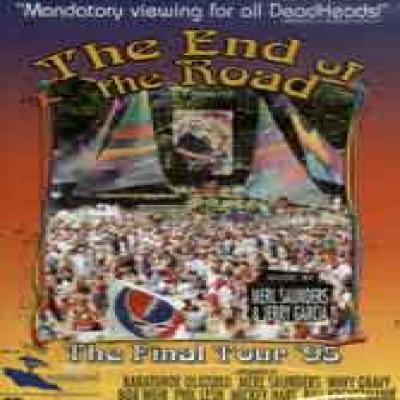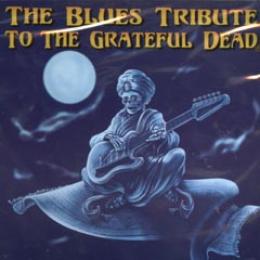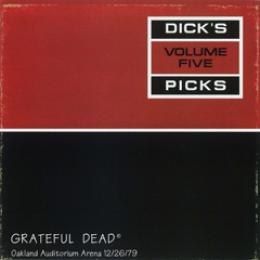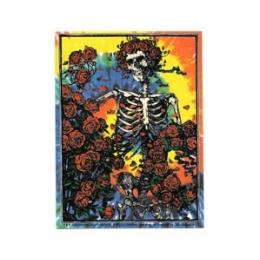Posted by: Anonymous | January 24th, 2005
Each Grateful Dead concert was an event all unto itself. Many believe the Grateful Dead preserved the blissful, undisturbed ideals of the 1960s, and their concerts provided an atmosphere were ethos and mores from this period were not only accepted, but encouraged. End of the Road is a film detailing this atmosphere during the Grateful Dead's final tour, as well as examining the thoughtful reaction of deadheads to Garcia's passing. It offers a unique perspective of the parking lot scene before/during/after concerts on the final Grateful Dead tour, as it began on the West Coast and worked it's way east, ending in Chicago, IL at Soldier Field. The film observes how the atmosphere at Grateful Dead shows gradually transformed from peace, love, and serenity; to hard drugs, a mob mentality, and turmoil that ultimately threatened the Dead's very existence.
End of the Road was produced, directed, edited, and photographed by Brent Meeske. The first part of the documentary examines the deviation in the behavior of fans at concerts throughout the tour, with a boiling point being the gate crashing incident at Deer Creek. Changes in fan behavior were not exclusively linked to the summer 95 tour, nor did the first gate crashing incident occur then. Gate crashing episodes go back to the 1980s, but Deer Creek was the first time it was substantial enough to cancel a concert for the first time in 30 years. One fan states, "three or four years prior (to 1995), there was an influx of people that started showing up at Dead shows with a completely different mentality." As one older fan notes, dead concerts are gatherings or "microcosms of society." Perhaps the incursion of negativity to the deadhead scene mirrors the shift in popular culture/music to grunge and angst ridden alternative at that time.
The Deer Creek incident and the canceling of the next night's show had a weighty effect on deadheads (at least the one's interviewed in End Of The Road). Many fans vowed to recapture their scene from this unwelcome facet of latter-day Grateful Dead concert scenes.
Interestingly, there is no concert footage of the Grateful Dead. The film focus's solely on the fans. For people like me who were unable to witness a Grateful Dead show, it gives a fascinating look at the Grateful Dead scene in 1995. Watching the Grateful Dead and deadheads literally take over stadiums and the areas surrounding them showed the mass attraction of the band and environment. The circus-like atmosphere of the parking lot is well documented, as Meeske literally becomes a touring deadhead and is accepted into the deadhead community. There was some initial skepticism by the deadheads surrounding his use of a camera and being filmed, but Meeske ultimately obtains the approval and acceptance of those he interviews in the parking lots pre/during/post show. Interviewees discuss everything from what/why they are selling various items on tour, why they are on tour to begin with, and how the scene has changed/is changing.
Following the end of the summer tour, the film documents the reaction to Garcia's death on August 9, 1995 in the Haight-Ashbury neighborhood and the memorial in Golden Gate Park. The footage of each surviving member of the Grateful Dead speaking at the memorial is poignant. A neat bonus feature (one of many included with the disc) video of the entire memorial, both uncut and unedited.
I suspect the future will bring more documentaries' examining the deadhead phenomenon and the spectacle surrounding the Grateful Dead and their concerts. As 2005 marks the 10th anniversary of Jerry Garcia's death and collective end of The Grateful Dead, End of the Road offers a sincere illustration of the dramatic changes transpiring within and without the Grateful Dead scene in 1995.
By Peter Kolesari
End of the Road was produced, directed, edited, and photographed by Brent Meeske. The first part of the documentary examines the deviation in the behavior of fans at concerts throughout the tour, with a boiling point being the gate crashing incident at Deer Creek. Changes in fan behavior were not exclusively linked to the summer 95 tour, nor did the first gate crashing incident occur then. Gate crashing episodes go back to the 1980s, but Deer Creek was the first time it was substantial enough to cancel a concert for the first time in 30 years. One fan states, "three or four years prior (to 1995), there was an influx of people that started showing up at Dead shows with a completely different mentality." As one older fan notes, dead concerts are gatherings or "microcosms of society." Perhaps the incursion of negativity to the deadhead scene mirrors the shift in popular culture/music to grunge and angst ridden alternative at that time.
The Deer Creek incident and the canceling of the next night's show had a weighty effect on deadheads (at least the one's interviewed in End Of The Road). Many fans vowed to recapture their scene from this unwelcome facet of latter-day Grateful Dead concert scenes.
Interestingly, there is no concert footage of the Grateful Dead. The film focus's solely on the fans. For people like me who were unable to witness a Grateful Dead show, it gives a fascinating look at the Grateful Dead scene in 1995. Watching the Grateful Dead and deadheads literally take over stadiums and the areas surrounding them showed the mass attraction of the band and environment. The circus-like atmosphere of the parking lot is well documented, as Meeske literally becomes a touring deadhead and is accepted into the deadhead community. There was some initial skepticism by the deadheads surrounding his use of a camera and being filmed, but Meeske ultimately obtains the approval and acceptance of those he interviews in the parking lots pre/during/post show. Interviewees discuss everything from what/why they are selling various items on tour, why they are on tour to begin with, and how the scene has changed/is changing.
Following the end of the summer tour, the film documents the reaction to Garcia's death on August 9, 1995 in the Haight-Ashbury neighborhood and the memorial in Golden Gate Park. The footage of each surviving member of the Grateful Dead speaking at the memorial is poignant. A neat bonus feature (one of many included with the disc) video of the entire memorial, both uncut and unedited.
I suspect the future will bring more documentaries' examining the deadhead phenomenon and the spectacle surrounding the Grateful Dead and their concerts. As 2005 marks the 10th anniversary of Jerry Garcia's death and collective end of The Grateful Dead, End of the Road offers a sincere illustration of the dramatic changes transpiring within and without the Grateful Dead scene in 1995.
By Peter Kolesari






